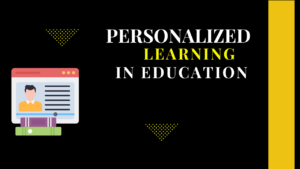
“The Seven Habits of Highly Effective People” is a self-help book written by Stephen R. Covey and published in 1989. The book has sold more than 25 million copies worldwide and has been translated into numerous languages.
The book presents a holistic, integrated approach to personal and professional effectiveness and teaches readers how to become more proactive, independent, and successful in their personal and professional lives. It emphasizes the importance of taking a principle-centered approach to personal and professional development and offers practical guidance on how to do so.
Stephen Coley summarizes twenty-five years of experience and thinking and presents his theory of the seven habits or practices that distinguish the happy, healthy, and successful from the unsuccessful. The seventh is about renewal by becoming a better person than he is, i.e. self-rehabilitation.
The book is organized around seven habits that Covey believes are essential to success. These habits are:
Habit 1: Be proactive, initiative, and effective (personal version)
Every person has the power to make his personal decisions. And when a person uses this power to choose his reaction based on his principles and not on the circumstances and the actions of others. He is a race, and the racing person works on the things that he has the ability to control (the circle of influence) instead of being preoccupied with the things that he cannot control (the circle of interests). He uses this power positively to influence events and expand the circle of influence.
Habit 2: Begin with the End in Mind (Personal Leadership)

Effective people carve their own futures, and they make use of a beginning and an end in mind in all areas of their lives rather than letting others or circumstances decide the outcome. They plan carefully for what they want to become, what they want to do, and what they want to have, and then let their mind map guide them in making their decisions. They live in wonderful harmony with what they do.
The third habit: start with the most important first. (personal management)
What are the first things? The first things are those things that we ourselves find worth doing that move us in the right direction and help us achieve the intrinsic principles found in our mission in life. And the initial things are often important and also perhaps urgent, and the best use of our time is by focusing on what is important in our work and our relationships.
Habit 4: Win-win thinking. (General Command)
The “win/win” thinking pattern is not a technique but a comprehensive philosophy for human dealings. It is a basic principle for success in all our dealings. It means that the two parties won because they chose agreements or solutions that benefit and satisfy both parties, which makes both parties feel comfortable with their decisions and committed to their performance. A person who thinks “win/win” has three basic traits, integrity, maturity, and mental abundance.
The upright person is honest in his feelings, principles, and commitments, and the mature man expresses his thoughts and feelings boldly while taking into account the feelings and ideas of others.
People with mental abundance believe that there is enough for everyone, and they recognize the unlimited possibilities for developing positive interaction and development, which creates a new third alternative that is acceptable to both parties.
Fifth Habit: Try to understand first so as to be understood (Communication)
When we listen with the intent to understand, our communication becomes more effective. And we let everything change according to our desires, we stop reading our directions in the lives of others, we start paying attention to what others are trying to say, and we are more ready to listen with the intention of understanding and responding.

The second part of this habit is to try to be understood by others. You need audacity and skill, the audacity to openly express your true feelings, and the skill to express your point of view well based on the abilities of others.
Sixth Habit: Solidarity (Creative Collaboration)
Redwood roots intertwine in a system that makes them grow close, which helps the trees not to fall in strong winds. Two people can multiply the results of what they would do if they were alone in creative cooperation and external interaction, and achieve much that they cannot achieve alone if they evaluate differences, open themselves to new possibilities, practice a win-win thinking pattern and build confidence in each other. What is between them, then they will reap and enjoy the benefits of their cohesion. (And cooperate in righteousness and piety)
Seventh Habit: Sharpening the Saw (Renewal)
The edge of the saw may not be able to cut through the wood with frequent use, and the edge is in a state that does not allow it to be used effectively. To work effectively we need to sharpen the saw. In other words, we need to maintain and develop ourselves. The key to success in sharpening the saw lies in working periodically on the four dimensions of renewal: physical/mental/social/spiritual (we need to work for about 3 hours a week on the four areas, and prayers, for example, take about two hours at least per week.
Conclusion
To sum up, the Seven Habits of Highly Effective People are a set of principles for personal and professional effectiveness. These habits, which include being proactive, setting clear goals, prioritizing tasks, and seeking first to understand before being understood, can help individuals become more organized, focused, and successful in their endeavors.
By adopting these habits and consistently applying them in their lives, people can develop the skills and mindset needed to achieve their full potential and make a positive impact on the world around them.






